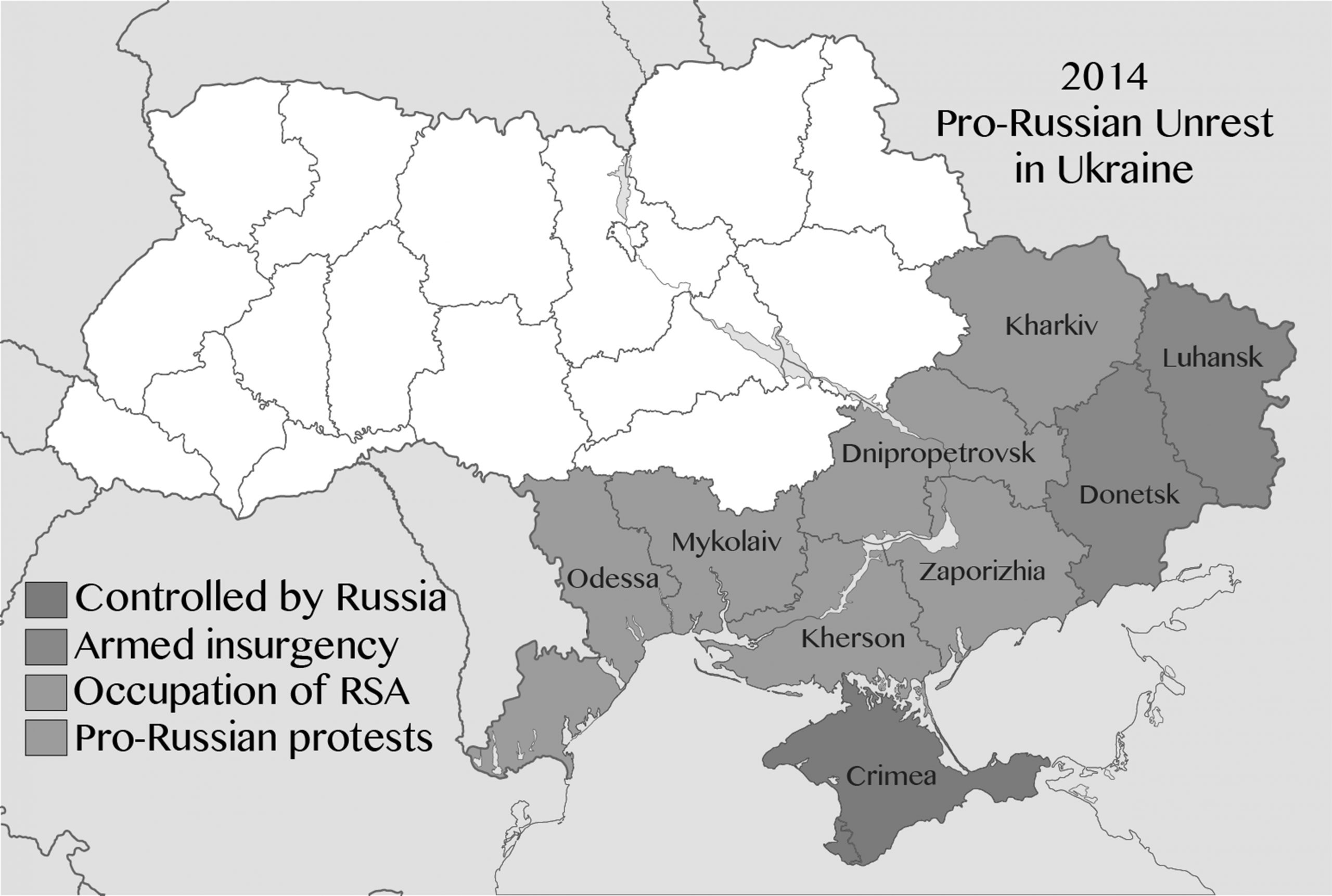 The past few months have been revolutionary for Ukraine. From protests to revolution, the nation appears to be as tumultuous as ever. Seemingly unable to catch a break, it has since been forced into the largest crisis it has faced since it gained independence after the collapse of the Soviet Union.
The past few months have been revolutionary for Ukraine. From protests to revolution, the nation appears to be as tumultuous as ever. Seemingly unable to catch a break, it has since been forced into the largest crisis it has faced since it gained independence after the collapse of the Soviet Union.
It began relatively simply with large protests in Kiev’s Independence square, fuelled by anger against a weak and corrupt government that was dominated by the Kremlin.
These Maidan protesters eventually caused the collapse and rebirth of that government, but unfortunately for Ukraine this was just the tip of the iceberg as Russia soon covertly invaded and occupied the valuable region of Crimea.
After occupying the whole of Crimea, the Russians held a “plebiscite”, otherwise known as a referendum that expresses public opinion, which was obviously fixed by the Kremlin, as it produced impossible margins that are reminiscent of the margins seen in Soviet style elections.
Unfortunately for the people of the Ukraine, President Vladimir Putin wasn’t satisfied and he has continued to send soldiers and arms to the rebels in eastern Ukraine that call themselves soldiers of the “The Peoples Republic of Donetsk.”
This crisis could be one of the most pivotal moments in world history since the German invasion and annexation of the Sudetenland.
The parallels between todays Russia and pre-war Nazi Germany are both numerous and immediately apparent, both nations had recently had their governments collapse and suffered both a hit to their prestige and harsh economic times after the governmental collapse.
Both men, once elected into office, turned their nation states into one–party states, both Adolf Hitler and Vladimir Putin were both rabidly nationalistic and desired to restore their nations power and prestige on the world stage.
The similarities go on, but the real question is, when will President Putin be satisfied?
Unfortunately we can never know for sure, but in light of his previously aggressive actions towards Georgia and now Ukraine, we know that he forcibly annexes territory that has a large population of ethnic Russians. He could likely have territorial ambitions throughout the former Soviet Republics.
President Putin’s Russia is the most prominent threat to the United States and to our NATO allies as there is no reason to think that the Russian aggression will stop unless they are confronted and taught that the United States still has the steel necessary to do what it will take to keep our allies and us safe.
President Obama’s decision to put certain embargoes on Russia are a step in the right direction, but these embargoes are not far reaching enough. They must be expanded to impact the Russian government in a much broader way. Our embargoes will be worthless unless we can convince our European allies to march in step with us.
To really expect our European allies to do this we need to make sure that we can supply them with the raw materials that the Russians have traditionally supplied, foremost among them being natural gas and petroleum. Thankfully the United States is in a position to supply Europe as long as the federal government allows continued drilling in the new fields in the American west.
We need to draw the line in the sand to show President Vladimir Putin exactly what NATO will do if he does not cease his unwarranted aggression. This can be accomplished by doing a few things.
Firstly we need to make sure that President Putin knows that we will do anything to assure the territorial integrity of our NATO allies.
The United States should also make sure that we do not cut military spending any further as we need to increase our military presence in Poland and the Baltic states to show that we are always willing and able to stand by our allies.
President Obama should also encourage our NATO allies to contribute militarily to the cause of keeping the Russians contained.
If we as Americans keep a level head and accept that we are entering a phase in our history that will likely be known as a renewed era of Cold War, then we can survive and thrive as we always have.
-Andy Gladitch
